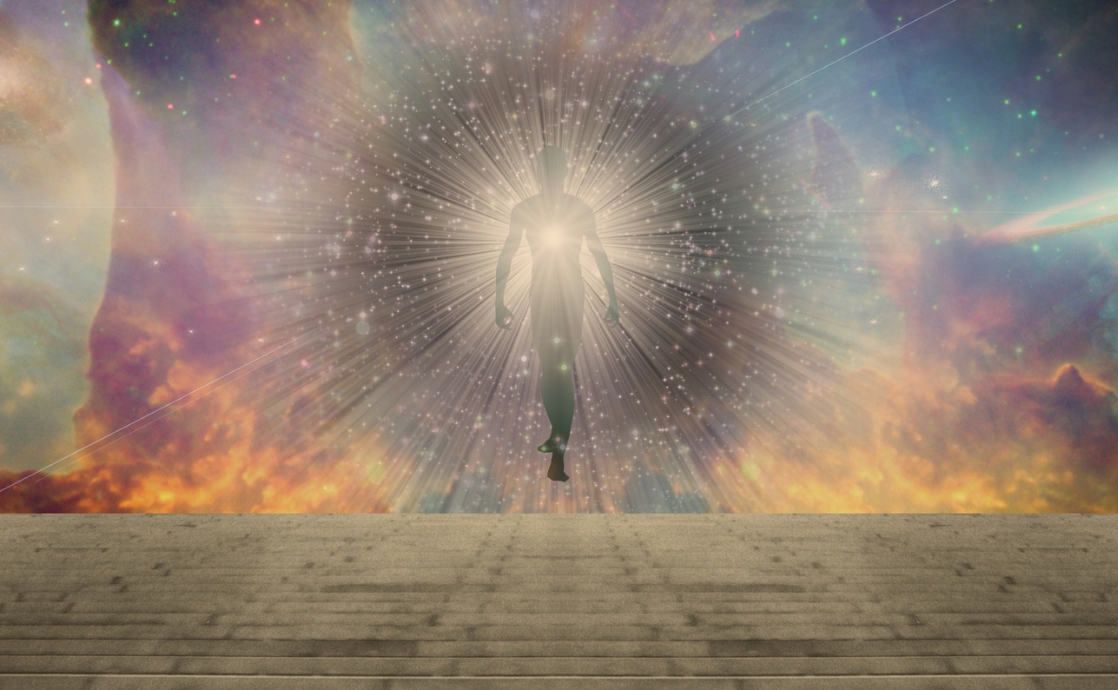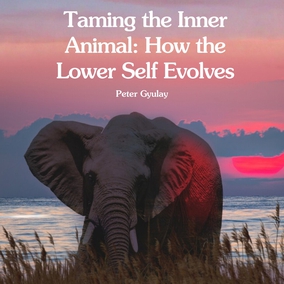The views expressed in our content reflect individual perspectives and do not represent the authoritative views of the Baha'i Faith.
In his book Some Answered Questions, Abdu’l-Baha offers a stunning explanation of the story of Adam and Eve in Genesis – one that makes the myth meaningful and relevant at the same time.
In Part 7, we took a close look at the explanation by Abdu’l-Baha, “Adam and Eve” in Some Answered Questions, and then cross-referenced to another impressive discourse, “The Rebukes Addressed by God to the Prophets,” also in Some Answered Questions, to show that God’s “rebuke” was “outwardly addressed” to the Prophet Adam, but was really “inwardly intended for the followers [“Adam” in the plural] and not for the Messenger”—and that the Prophet Adam’s outward “sin,” relatively speaking, was a “good deed“ that “produced substantial results,” which was the general awakening of humankind to the knowledge of “good and evil,” which was the birth of human moral and ethical consciousness, given the Prophet Adam’s role in “Progressive Revelation” as “that of the embryo.”
RELATED: The Prophet Adam and Original Sin
Although Abdu’l-Baha encouraged everyone not to take the Biblical creation story literally, he expressed his appreciation of the deeper meanings, which are profound:
The account of Adam and Eve, their eating from the tree, and their expulsion from Paradise are therefore symbols and divine mysteries. They have all-embracing meanings and marvellous interpretations, but only the intimates of the divine mysteries and the well-favoured of the all-sufficing Lord are aware of the true significance of these symbols.
Briefly, Abdu’l-Baha conveyed the following interpretation of this highly allegorical narrative:
The meaning of the serpent is attachment to the material world. This attachment of the spirit to the material world led to the banishment of the self and spirit of Adam from the realm of freedom to the world of bondage and caused Him to turn from the kingdom of Divine Unity to the world of human existence. When once the self and spirit of Adam entered the material world, He departed from the paradise of freedom and descended into the realm of bondage. He had abided in the heights of sanctity and absolute goodness, and set foot thereafter in the world of good and evil.
Some overlap exists between Baha’i and Catholic teachings on the concept of sin – the attachment to the human world. Baha’is believe sin was passed on as part and parcel of the human condition, which is really an inheritance from the animal aspects of our inherent nature:
Now consider how closely this interpretation conforms to reality: For when the spirit and the self of Adam became attached to the material world, they passed from the realm of freedom into the realm of bondage; this condition was perpetuated with each succeeding generation, and this attachment of spirit and self to the material world—which is sin—was inherited by His descendants. This attachment is the serpent which will forever be in the midst of, and at enmity with, the spirits of the descendants of Adam, for attachment to the world has become the cause of the bondage of the spirits. This bondage is that sin which has been transmitted from Adam to His descendants, for it has deprived men of recognizing their essential spirituality and attaining to exalted stations.
Christians believe that this is why Christ came to save our souls. But the Baha’i teachings say the salvation that Christ offered is not a “vicarious atonement” — as Catholic dogma, Protestant doctrine, and Orthodox teachings characterize it — but a salvation that transforms human nature, from material to spiritual:
When the holy breaths of Christ and the sanctified lights of the Most Great Luminary were spread abroad, human realities—that is, those souls who turned towards the Word of God and partook of His manifold grace—were saved from this attachment and sin, were granted eternal life, were delivered from the chains of bondage, and entered the realm of freedom. They were purged of earthly vices and endowed with heavenly virtues. This is the meaning of Christ’s words that I gave My blood for the life of the world. (Cf. John 6:51.) That is, I chose to bear all these trials, afflictions, and calamities, even the most great martyrdom, to attain this ultimate objective and to ensure the remission of sins—that is, the detachment of spirits from the material world and their attraction to the divine realm—that souls may arise who will be the very essence of guidance and the manifestations of the perfections of the Kingdom on high.
Contrary to the Catholic teaching of “original sin,” Adam’s primordial transgression – committed by humankind, but imputed to the prophet Adam in the Biblical creation story – did not carry with it eternal damnation for the entire human race, as Abdu’l-Baha explained in Some Answered Questions:
Note that if these words were taken literally, as imagined by the people of the Book (i.e., Jews and Christians), it would be sheer injustice and absolute tyranny. If Adam sinned in approaching the forbidden tree, what then was the sin of glorious Abraham, the Friend of God, and the error of Moses, Who conversed with God? What was the offence of Noah the Prophet and the transgression of truth-speaking Joseph? What was the fault of the Prophets of God and the failure of John the Chaste? Would divine justice have suffered these luminous Manifestations to endure, by reason of Adam’s sin, the torment of hell until such time as Christ should come and by His sacrifice rescue them from the nethermost fire? Such a notion is beyond the pale of every rule and principle, and no rational person can ever accept it.
I would venture to say that the name of the Prophet “Adam” (which simply means “Man”) is generic, because the same name, in its plural form, means “humankind”, as seen in this biblical verse: “Male and female He created them, and He blessed them. And in the day they were created, He called them “man.” (Genesis 5:2, Berean Study Bible translation.) The very next verse, Genesis 5:3, goes on to say: “When Adam was 130 years old, he had a son in his own likeness, after his own image; and he named him Seth.” Note the shift from the plural to singular forms of word, “Adam” in these two consecutive verses.
RELATED: Adam and the Age of Prophecy
So I think of the Prophet “Adam” as “the Man” in an archetypal sense. Through the mists of scriptural history, we see him only dimly, representationally, and paradigmatically.
The prophet Adam was seen as an ancient holy messenger in some early Christian circles. The Jewish Christians known as the Ebionites accounted Adam as one of the “seven pillars of the world” (which included Adam, Enoch, Noah, Abraham, Isaac, Jacob, and Moses) in The Clementine Homilies, widely considered to be a Jewish-Christian text. As this passage from The Clementine Homilies shows, Adam was thought of as one of a succession of prophets:
Chapter XIII. Peter’s Explanation of the Passage
… And Peter said: … “The statement also, ‘to whomsoever the Son may wish to reveal Him,’ is also correct; for He being the Son from the beginning, was alone appointed to give the revelation to those to whom He wishes to give it. And thus the first man (protoplast) Adam must have heard of Him [Christ]; and Enoch, who pleased God, must have known Him; and Noah, the righteous one, must have become acquainted with Him; and Abraam His friend must have understood Him; and Isaac must have perceived Him; and Jacob, who wrestled with Him, must have believed in Him; and the revelation must have been given to all among the people who were worthy. – The Clementine Homilies, Homily 18, Chapter 13 (Hom. 18.13), https://www.newadvent.org/fathers/080818.htm
The metaphor of “the seven pillars of the world” – based on Proverbs 9.1: “Wisdom hath builded her house, She hath hewn out her seven pillars” – can also refer to the prophets and founders of the world’s great Faiths. In the annals of religion, and in the Baha’i scriptures, Adam is considered one of those great holy messengers. And further:
Chapter XX. Christ the Only Prophet Has Appeared in Different Ages
“But give heed to my first discourse of the truth. If any one do not allow the man fashioned by the hands of God to have had the Holy Spirit of Christ, how is he not guilty of the greatest impiety in allowing another born of an impure stock to have it? But he would act most piously, if he should not allow to another to have it, but should say that he alone has it, who has changed his forms and his names from the beginning of the world, and so reappeared again and again in the world, until coming upon his own times, and being anointed with mercy for the works of God, he shall enjoy rest forever. His honour it is to bear rule and lordship over all things, in air, earth, and waters. But in addition to these, himself having made man, he had breath, the indescribable garment of the soul, that he might be able to be immortal.”
Chapter XXI. The Eating of the Forbidden Fruit Denied
“He himself being the only true prophet, fittingly gave names to each animal, according to the merits of its nature, as having made it. For if he gave a name to any one, that was also the name of that which was made, being given by him who made it. How, then, had he still need to partake of a tree, that he might know what is good and what is evil, if he was commanded not to eat of it? But this senseless men believe, who think that a reasonless beast was more powerful than the God who made these things.” – The Clementine Homilies, Homily 3, Chapters 20–21 (Hom. 3.20–21), https://www.newadvent.org/fathers/080803.htm.
Here, this effort to exonerate the prophet Adam from committing what Catholic doctrine would later refer to as “original sin” is quite remarkable, especially considering that this argument exists “in splendid isolation,” as scholars say, and is “unique,” according to German scholar, Hans-Joachim Schoeps:
Concerning the True Prophet Adam, it is fancifully stated … that he had inhaled the breath of divinity and thus foreknew everything, and, as prophet, had predicted everything, all the more since he had been anointed with the oil of the Tree of Life. Even complete freedom from sin is affirmed for Adam on the assumption that otherwise the divine Spirit in him would have sinned (Rec. 3.20 f.). This is entirely unique in the literature of the ancient church and it contradicts what we find in the literature of Gnosticism. … [and] presents a view of history which transfers the Fall to the eighth generation of mankind and makes it the fall of the children of Seth.
Suffice it to say that a Baha’i perspective on the Prophet Adam is not without precedent in early Christianity, as previously described, although not the mainstream positions as held in Catholic, Orthodox and Protestant doctrines. This should come as no surprise, as the Baha’i Faith, as a relatively new, independent world religion, not only presents new social principles suited to this day and age, but presents fresh perspectives on past religious issues that captured widespread attention in their heyday, and that continue to be believed—and debated—in our own time.
















Comments
Sign in or create an account
Continue with Googleor